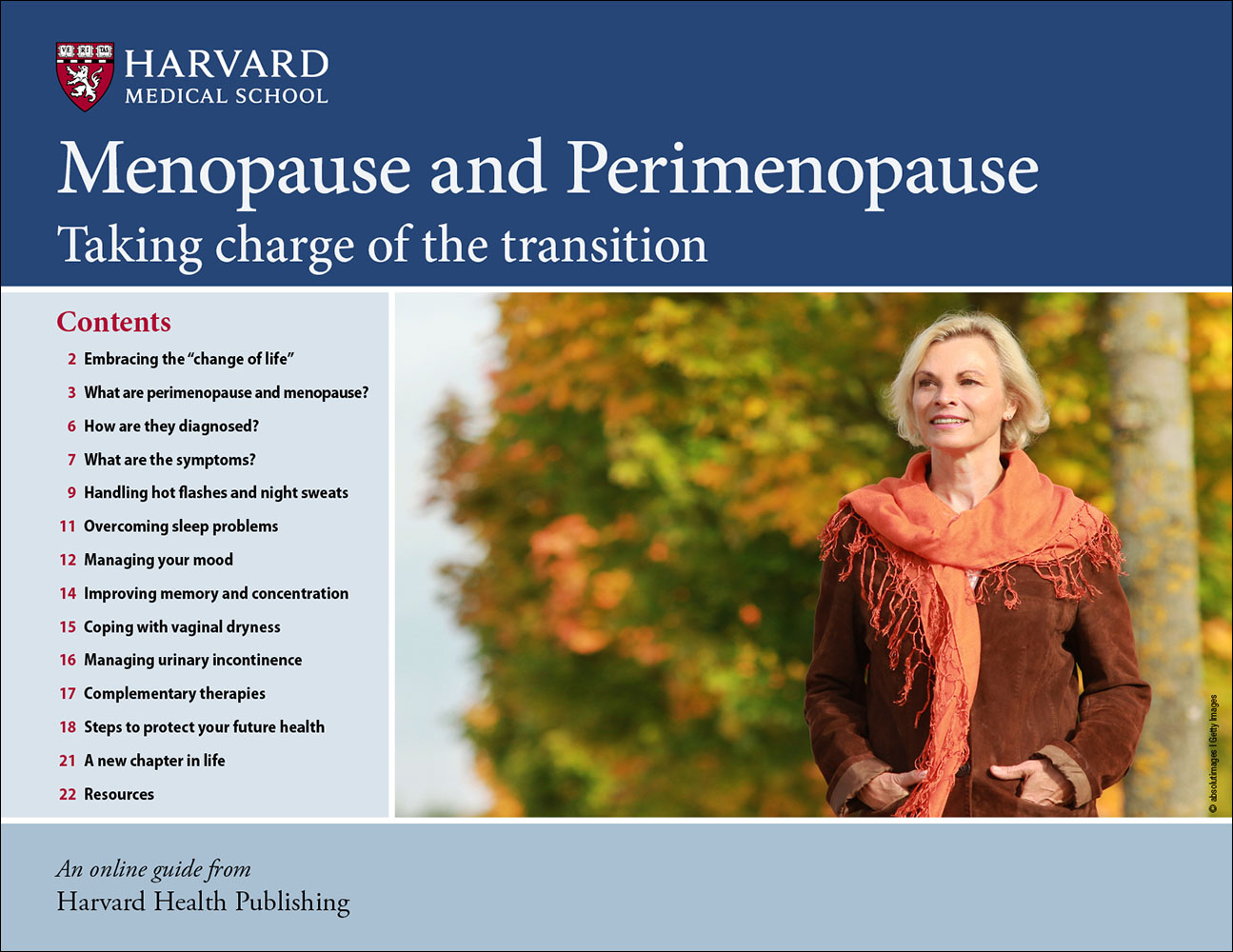Ovary removal before menopause may pose health risks
Research we're watching
- Reviewed by Toni Golen, MD, Editor in Chief, Harvard Women's Health Watch; Editorial Advisory Board Member, Harvard Health Publishing; Contributor
 Women who have both ovaries removed before menopause face far higher odds of several chronic health conditions decades later, according to a study published online Sept. 12, 2023, by Menopause.
Women who have both ovaries removed before menopause face far higher odds of several chronic health conditions decades later, according to a study published online Sept. 12, 2023, by Menopause.
The study involved 274 women (average age 67) whose ovaries had been removed before menopause for a noncancerous condition — either with or without a hysterectomy. An average of 22 years after their surgery, the women underwent comprehensive physical exams to assess the presence of any chronic conditions and measure their strength and mobility. Compared with women of the same age who still had their ovaries, women who were under age 46 when their ovaries were removed were 64% more likely to have arthritis, twice as likely to have obstructive sleep apnea, and nearly three times as likely to have had a bone fracture. They also performed worse on a six-minute walk test. Women who'd undergone ovary removal between ages 46 and 49 also had higher odds of arthritis and sleep apnea than same-age women who didn't have the surgery. However, researchers didn't find a link between ovary removal before menopause and an array of other conditions, including cancer, diabetes, dementia, high blood pressure, high cholesterol, irregular heart rhythm, osteoporosis, or kidney, liver, or thyroid disease.
Women who have their ovaries removed before menopause should consider going on estrogen therapy until about age 50, the study authors said.
Image: © Dmytro Lukyanets/Getty Images
About the Author

Maureen Salamon, Executive Editor, Harvard Women's Health Watch
About the Reviewer

Toni Golen, MD, Editor in Chief, Harvard Women's Health Watch; Editorial Advisory Board Member, Harvard Health Publishing; Contributor
Disclaimer:
As a service to our readers, Harvard Health Publishing provides access to our library of archived content. Please note the date of last review or update on all articles.
No content on this site, regardless of date, should ever be used as a substitute for direct medical advice from your doctor or other qualified clinician.
















